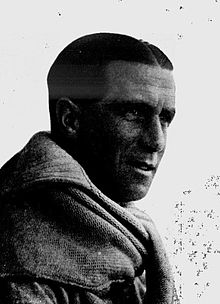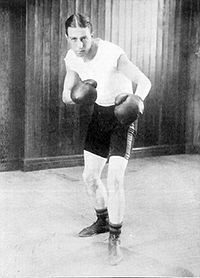JWHT Douglas
 |
||||||||||||||||||||||||||||||||||||||||
| Personal information | ||||||||||||||||||||||||||||||||||||||||
|---|---|---|---|---|---|---|---|---|---|---|---|---|---|---|---|---|---|---|---|---|---|---|---|---|---|---|---|---|---|---|---|---|---|---|---|---|---|---|---|---|
| Full name | John William Henry Tyler Douglas | |||||||||||||||||||||||||||||||||||||||
| Born |
3 September 1882 Stoke Newington, London, England |
|||||||||||||||||||||||||||||||||||||||
| Died | 19 December 1930 (aged 48) at sea, seven miles south of the Laeso Trindel Lightship, Denmark |
|||||||||||||||||||||||||||||||||||||||
| Batting | Right-handed | |||||||||||||||||||||||||||||||||||||||
| Bowling | Right arm fast-medium | |||||||||||||||||||||||||||||||||||||||
| International information | ||||||||||||||||||||||||||||||||||||||||
| National side | ||||||||||||||||||||||||||||||||||||||||
| Test debut (cap 170) | 15 December 1911 v Australia | |||||||||||||||||||||||||||||||||||||||
| Last Test | 8 January 1925 v Australia | |||||||||||||||||||||||||||||||||||||||
| Domestic team information | ||||||||||||||||||||||||||||||||||||||||
| Years | Team | |||||||||||||||||||||||||||||||||||||||
| 1901–1928 | Essex | |||||||||||||||||||||||||||||||||||||||
| 1903–1904 | London County | |||||||||||||||||||||||||||||||||||||||
| Career statistics | ||||||||||||||||||||||||||||||||||||||||
|
||||||||||||||||||||||||||||||||||||||||
|
Source: Cricinfo, 11 November 2008
|
||||||||||||||||||||||||||||||||||||||||
 Douglas as a boxer at the 1908 Summer Olympics |
||
| Medal record | ||
|---|---|---|
| Men's boxing | ||
| Representing |
||
| Olympic Games | ||
| 1908 London | Middleweight | |
John William Henry Tyler "Johnny" Douglas (3 September 1882 – 19 December 1930) was an English cricketer who was active in the early decades of the twentieth century. Douglas was an all-rounder who played for Essex County Cricket Club from 1901 to 1928 and captained the county from 1911 to 1928. He also played for England and captained the England team both before and after the First World War with markedly different success. As well as playing cricket, Douglas was a notable amateur boxer who won the middleweight gold medal at the 1908 Olympic Games.
Douglas was the son of John H. Douglas and was born at Stoke Newington, London in what is now Belfast Road. He was educated at Moulton Grammar School and Felsted School and joined his father's wood-importing firm, which supported his amateur status in cricket and boxing. Douglas also played football once for the England amateur side (occasion unknown, through loss of records). He served in the Bedfordshire Regiment throughout World War I, eventually as major (acting lieutenant-colonel).
Douglas was an excellent Middleweight boxer becoming Olympic champion at the 1908 Games held in London. All three of his bouts, including the final, described by The Times as "one of the most brilliant exhibitions of skilful boxing, allied to tremendous hitting, ever seen.", were held on the same day. The silver medal winner, Snowy Baker, 44 years later falsely claimed that Douglas's father was the sole judge and referee.
Baker never publicly contested the close points verdict which Douglas, who scored a second-round knockdown over him, won in their Olympic final. But, in a 1952 interview, he claimed that Douglas’s father had refereed the fight, leading to widespread suspicion of a dodgy decision, but in fact John Douglas senior was only at ringside, from where refs worked in those days, to present the medals, in his role as president of the ABA. The real ref was Eugene Corri who did not have to give a casting vote as the two judges agreed that Douglas was a narrow winner. Douglas Jr, his father and his younger brother, Cecil ('Pickles') were all prominent referees and officials in the ABA, the last also being the leading referee in the professional sport in the 1930s. Douglas also won the 1905 ABA Middleweight title.
...
Wikipedia
